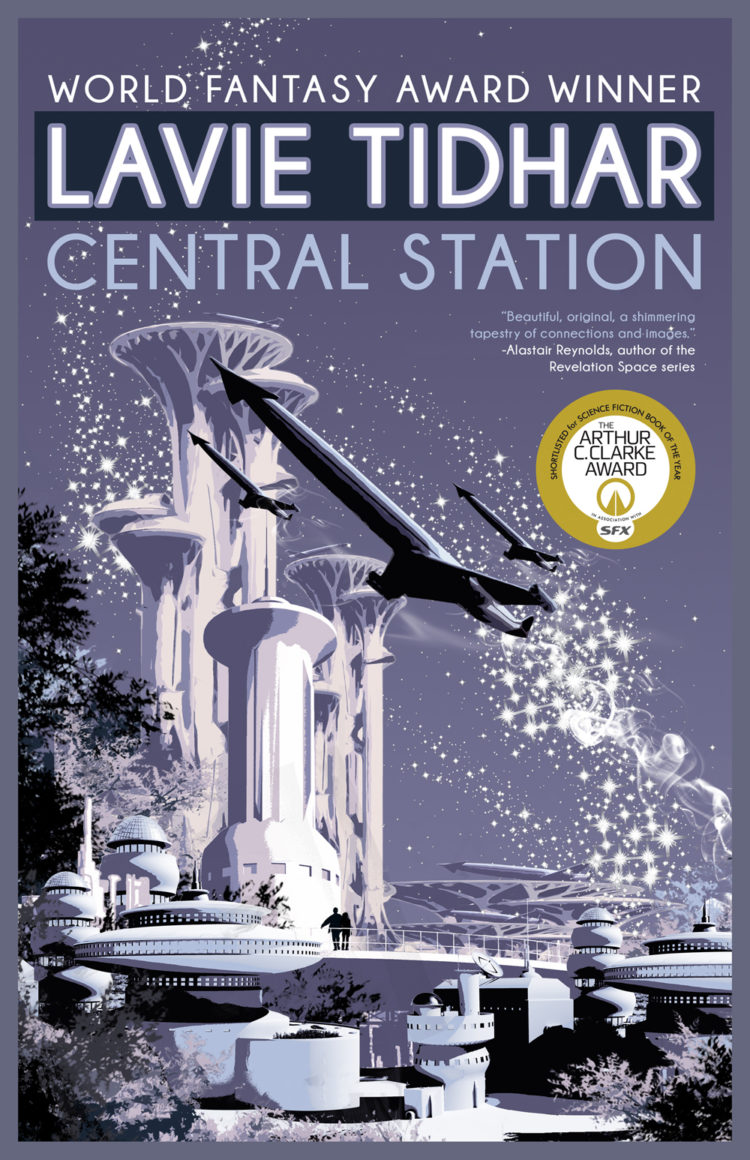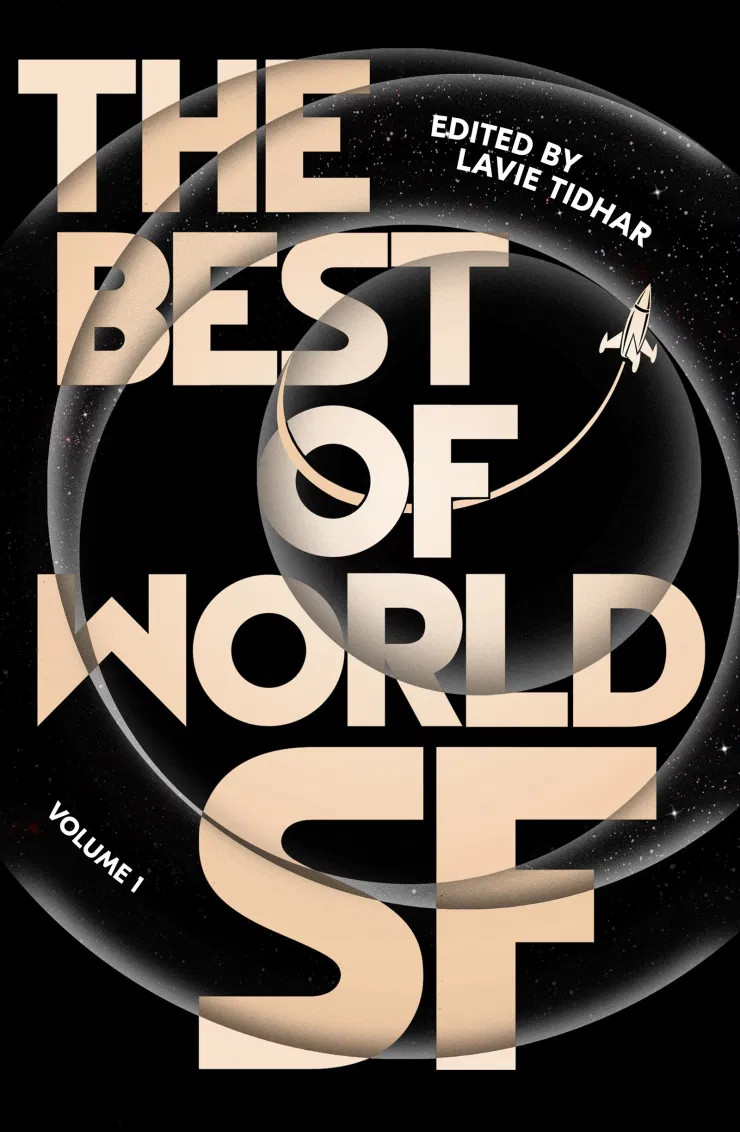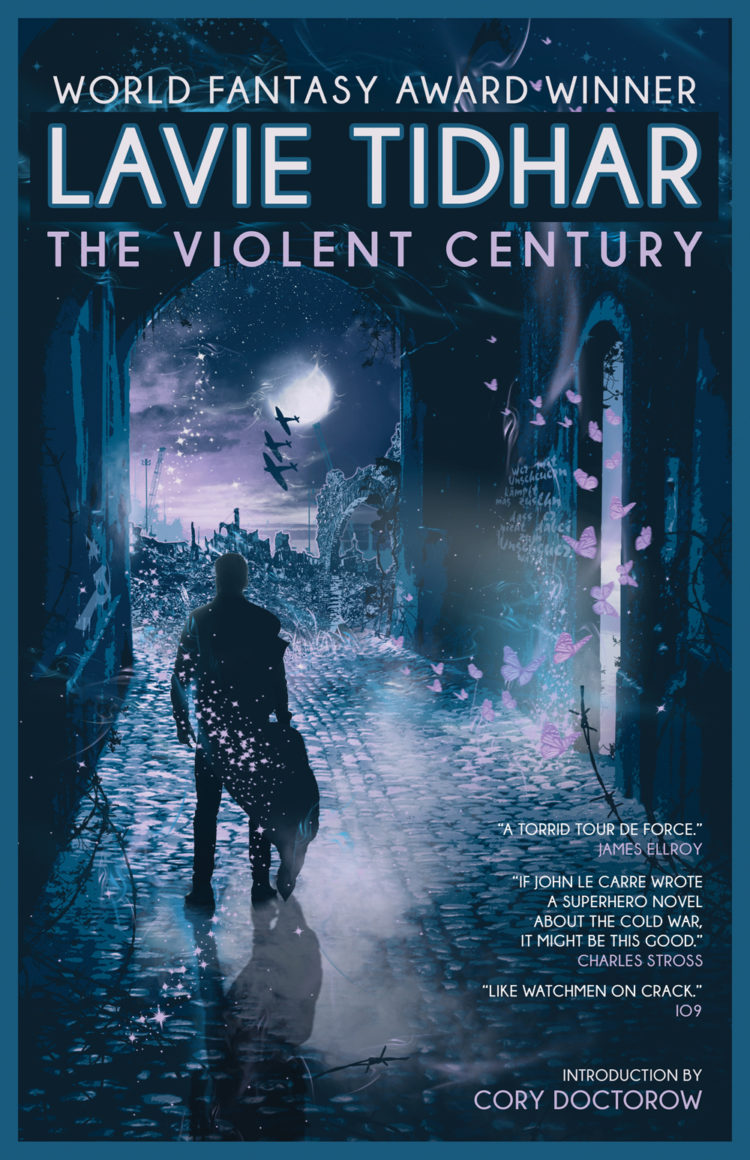Like so many others, is Charlie Kaufman a Lavie Tidhar fan?

On Twitter, Gwilym Eades shares a passage from Charlie Kaufman’s Antkind that references Lavie Tidhar.
Over four years since publication, Tidhar’s CENTRAL STATION continues to garner attention and praise.
This is not a long novel, but each of its chapters brings to life so many luminous moments of powerful emotional connection and builds the world of Central Station so convincingly that it feels much longer. I wish it were. It’s one of those books I savor and read slowly to keep it going. For me, Central Station is one of the classics of this century.
SCIFI MIND
So unlike too many science fiction and fantasy novels, this one is a slice of future life with plenty of danger and mysteries. Some but hardly all are thwarted or solved–and then we go on. It’s a kind of high realism, if you like.
MEREDITH SUE WILLIS’S BOOKS FOR READERS #211-215

Describes the life of various people living around a space station in far-future Tel Aviv and reads like a tranquil fever dream. The worldbuilding is extremely strange, featuring everything from robo-priests to vampires that feed on data, but it’s also super super chill.
REDDIT r/Fantasy Best fantasy novel you read in 2020?
Strange, literary fever dream of a sci-fi book set at the base of a space station in far-future Tel Aviv. It’s true slice of life in that it has no plot, but is instead made out of interconnected fragments of the characters’ lives. Chill, relaxing, optimistic, with an incredibly diverse setting and some of the oddest worldbuilding I’ve seen (robo-priests, data vampires…).
REDDIT r/Fantasy Fantasy novels with smaller stakes?
The Romanian BLOGARY enjoys THE VIOLENT CENTURY.
Stylistically, THE VIOLENT CENTURY is one of the most interesting novels I’ve ever read. Although it is not an easy read at all, but one that requires effort from the reader, THE VIOLENT CENTURY is one of the most satisfying and full of wonderful books in recent years.
Translation from Romanian courtesy of Google
TOR.COM publishes the short story “Judge Dee and the Limits of Law.”
The sun had long set over the distant mountains, and the night world was still but for the two small figures trudging silently under the moonlight. One was tall and thin and moved with a precise energy. The other, smaller, kept hurrying to catch up behind. They wended their path over a dirt road threaded through the fields, earth beaten down under the tread of farmers’ feet.
‘There is a village up ahead, master,’ the smaller figure said. ‘If you are in need of feeding.’
The taller one said, ‘One must feed out of necessity, not greed, Jonathan.’
‘Of course, master.’
Jonathan peered ahead. He was grateful for the moon, for without its light he would find it hard to see, unlike his master. Too often in the moonless nights of their passage he tripped and stumbled and, once, would have fallen into a ravine had not his master interceded.
‘A lesson lost on many of the young ones.’ The master stopped, scenting the air. ‘The postulant feeds from fear and hunger; the novice from greed; the lay vampire, if he has reached that far, feeds for it has learned to accept its nature. Not too little to starve. Not too much to bring about one’s own destruction. Do you understand?’
I…yes?’
The master smiled. The smile tore his face in two, revealed his sharp white teeth, reached nearly to those clear and ancient eyes which saw the cruelty of the world long before his companion’s birth. How many decades – centuries – the young assistant never asked. Jonathan was human, and warm-blooded, and young. And his master was Judge Dee.

Image by Red Nose Studio 
Also at TOR.COM, Tidhar shares an essay on his anthology The Best of World SF.
I spent the past decade trying to pitch a simple idea to publishers: a mass market anthology of international speculative fiction for the bookstore shelf. The responses varied from, well, no response at all to an under-an-hour rejection (that one still hurts).
The idea is simple and, to me, both logical and necessary. I am of that new generation of writers who grew up in a language other than English, and who decided at some point that our way in is to write in this peculiar, second language. Somehow, we reasoned, against all odds and common sense, we’ll break through into that rarefied Anglophone world, maybe even make a go of it. After all, how hard could English be?
Many of the writers in The Best of World SF do indeed write in English as a second language. Others are translated, thanks to the tireless effort of passionate translators from around the world. As a sometimes translator myself, I know how rarely translators get acknowledged or, indeed, paid, and I made sure that they were paid the same for these stories as the authors themselves.
I was fortunate enough to publish five anthologies of international speculative fiction for the small press in the past decade. The Apex Books of World SF (the last two edited by the fantastic Mahvesh Murad and Cristina Jurado, respectively), are an incredible project, and the unsung Jason Sizemore is my hero for doing them all this time. I promised him he won’t make any money from them when I first pitched the idea, but he’s stubborn fool and still thought they were worth doing—which indeed they were.

